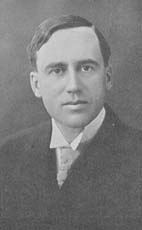Top Qs
Timeline
Chat
Perspective
1917 Saskatchewan general election
Canadian provincial election From Wikipedia, the free encyclopedia
Remove ads
The 1917 Saskatchewan general election was held on June 26, 1917, to elect members of the Legislative Assembly of Saskatchewan.
After replacing Walter Scott as leader of the Liberal Party of Saskatchewan and premier of the province, William M. Martin led the party to its fourth consecutive victory, winning all but 8 of the 59 seats in the legislature.
The Conservative Party of Wellington Willoughby continued to lose popular support.
This was the first Saskatchewan election in which women were allowed to vote and run for office. However, none were declared elected in this election. The first Saskatchewan woman MLA was elected in a 1918 by-election.
The Non-Partisan League, forerunner of the Progressive Party of Saskatchewan, ran candidates in this election but none were successful. Labour candidates also appeared for the first time.
David John Sykes became the first Independent to sit in the Saskatchewan legislature. He was nominated by the Liberal, Conservative and Non-Partisan League organizations, and was acclaimed to the seat this election.[1]
A separate army ("service") vote was held from October 3 to October 13, 1917 to elect three soldier MLAs. All service candidates were Independent (not affiliated), and those MLAs were elected to represent Saskatchewan residents stationed in France, Belgium and the United Kingdom of Great Britain and Ireland.
Remove ads
Results
Note:* Party did not nominate candidates in previous election.
Percentages
Remove ads
Members of the Legislative Assembly elected
Summarize
Perspective
For complete electoral history, see individual districts
Notes
1 Magnus Ramsland died in 1918. In the resulting by-election, he was succeeded by his widow Sarah Ramsland, the first woman ever elected to the Legislative Assembly of Saskatchewan.
Remove ads
October 13, 1917 service vote results
Like other provinces Saskatchewan held a service vote – actually two separate votes – for Saskatchewan residents in the Canadian armed services fighting during World War I. The first vote was for France and Belgium – two members were elected in a block vote; the top member represented France and the second member elected represented Belgium. Another member was also elected to represent troops in Great Britain. Three seats in the Legislature were set aside for these soldier-MLAs.
France and Belgium
Great Britain
See also
References
Further reading
Wikiwand - on
Seamless Wikipedia browsing. On steroids.
Remove ads

